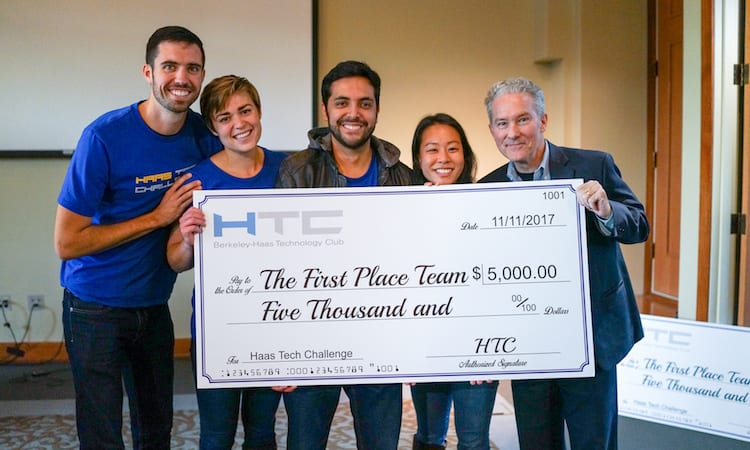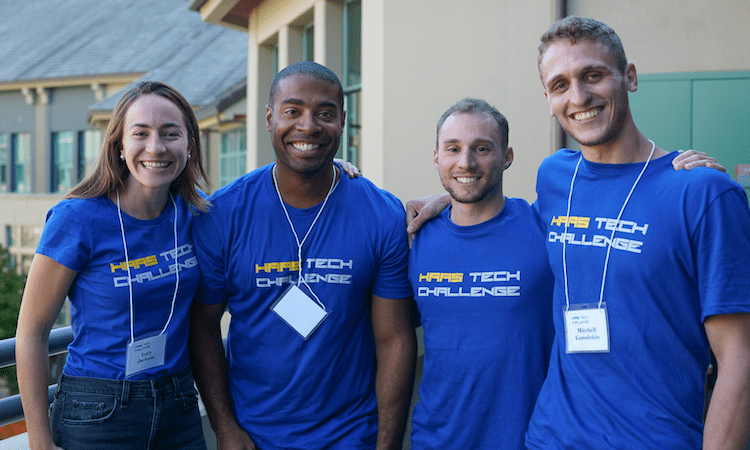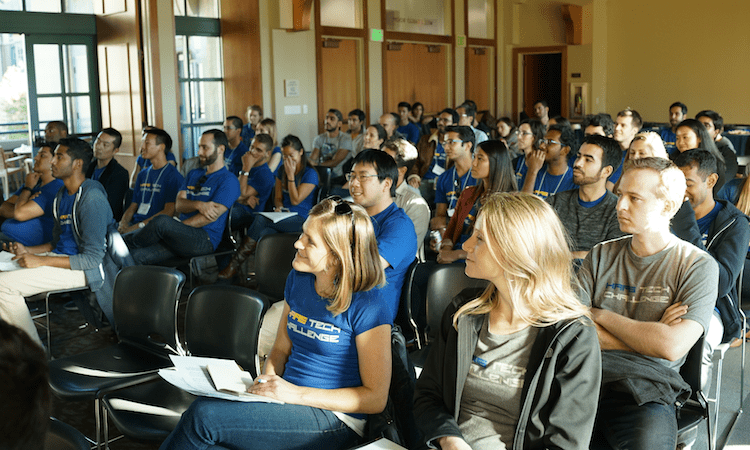The home team took the top prize at this year’s Berkeley Haas Tech Challenge, for its futuristic look at how Ford could help Seattle residents commute around the city.
The winning Haas team, which included Jaime Tellez Sanchez, Maryli Cheng, Francesca LeBaron, and Conor Farese, all MBA 19, bested teams from nine other schools.

Ford Smart Mobility sponsored the three-day challenge, held Nov. 9-11. The automaker’s theme was: “Driving Change: Finding solutions for the future of urban mobility.” Competing teams arrived at Berkeley from across the U.S. for a Friday tour of Ford’s Palo Alto Research and Innovation Center and an interactive project hosted at Ford’s Greenfield Labs, a collaboration with IDEO.
For the challenge, students were asked to consider technologies like autonomous driving, electrification, and machine learning to design the future of mobility for the city of Seattle.
Shifting from automaker to mobile player
The Haas team decided to create a high-level, integrated platform that would enable people to coordinate multiple kinds of transportation—a bus or train connected to a ride- or bike-sharing service—to get to their destinations. Their goal was to help Ford better understand how people use different kinds of transportation, as the company shifts its business model from automaker to full mobile player, with car- and bike-sharing services and eventually autonomous vehicles.
The challenge involved thinking about what Ford provides its customers at a higher level, Farese said. “When you got keys to your first car you were getting mobility, freedom, and the ability to move into spaces that were personal and flexible,” he said. “In the future, that freedom will be delivered in a bunch of different ways because people won’t own vehicles. We wanted to show how Ford could provide mobility and freedom in an age where people didn’t own a car.”

Noam Nishry, who with Mehmet Örgüt (both MBA 18) organized the competition as Haas Tech Club co-chairs, said they received an unprecedented 75 applications from 22 schools interested in competing this year. They whittled those applications down to nine spots.
“We had many ideas around driverless cars, connected roads that identify parking lots, and drone delivery of packages–a lot of things,” Nishry said.

The teams made their presentations on Saturday. By the afternoon, three top teams were chosen for a final round. Dean Rich Lyons presented the $5,000 first-place award to the Haas team.
The power of design thinking
LeBaron said the Haas team’s experience with design thinking and storytelling played to their favor, giving them the tools they needed to tell a compelling story of what their platform could mean for Ford.
“The members of our team had all taken a design-thinking course,” she said. “Our advantage wasn’t that we knew the mobility space inside out or that we we were car enthusiasts, but that we knew and understood human-centered design. We weren’t the experts in the car field but we were thinking out of the box. We had Post-its up all over the place. We were color coding, and moving things around and brainstorming and it all ended up working out.”
The competing business schools included Yale, Kellogg, Columbia, Chicago Booth, MIT Sloan, UCLA, Wharton, and Darden.